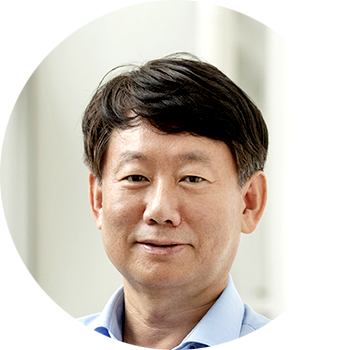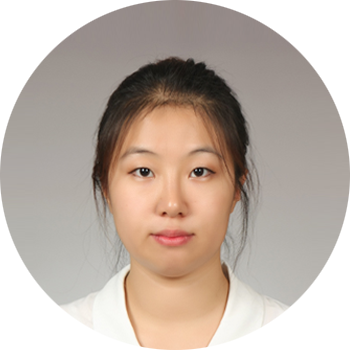People

Dongmin Kang, Ph.D.
Ewha Womans University, Professor
Director of BDCC
dkang@ewha.ac.kr
Research Interests
Cancer Signaling, Redox Signaling, Molecular Cell and Tissue Imaging
Dongmin Kang lab is interested in elucidating mode of action of anticancer drugs using in vivo small animals and in vitro 3-dimensional (3-D) tissue microenvironment models to promote therapeutic efficacy and investigating the roles of reactive oxygen species during signaling in cancer cells using imaging tools.
1. Evaluation of drug candidates to inhibit metastatic progression of cancer
The lab is interested in molecular mechanism for combination therapy of conventional drugs (inducing DNA damage and cell cycle arrest) and cancer cell metabolic changers (including autophagy regulators or redox regulators). The lab focuses on the investigation of molecular mechanism of mega-dose vitamin C as a prooxidant and autophagy regulators as metabolic changers in cell or 3-D tissue microenvironment models to improve combination therapeutic efficacy.2. Redox-regulated phosphoinositides signaling
Inositol phospholipid signaling is implicated in many important cellular events including peptide hormone induced signal transduction, actin polymerization, protein and vesicular trafficking and cell migration. The lab focuses on the regulation of phosphoinositide phosphatases containing cysteine residue by H2O2 and investigating the physiological consequence of their oxidation.3. Development of optical imaging tools to monitor physiological events in tissue microenvironment
The lab focuses on producing pancreatic cancer microenvironment model consisting of cancer cells, stromal cells (pancreatic stellate cells), and extracellular matrix and monitoring activation of cancer cells and stromal cells. A long-term goal is to find anti-metastatic drugs and elucidate mode of action of them using 3-D tissue models and imaging tools.
Recent Publications
- Diclofenac: A nonsteroidal anti-inflammatory drug inducing cancer cell death by inhibiting microtubule polymerization and autophagy flux. Antioxidants, 2022, v.11 no. 5, 1009.
- Endosomal mtorc2 is required for phosphoinositide-dependent akt activation in platelet-derived growth factor- stimulated glioma cells. Cancers, 2021, v.13 no.10, 2405
- The role of hydrogen peroxide and peroxiredoxins throughout the cell cycle. Antioxidants, 2020, v.2020 no.9 280.
- Inactivation of the PtdIns(4)P phosphatase Sac1 at the Golgi by H2O2 produced via Ca2+-dependent Duox in EGF-stimulated cells. Free Radical Biology and Medicine, 2019, 131: 40
- Control of the pericentrosomal H2O2 level by peroxiredoxin I is critical for mitotic progression. Journal of Cell Biology, 2015, v.210 no.1, 23
Participating Faculty and Researchers
-

Mijung Kwon, Ph.D.
Associate Professor
-

Yangkyun Oh, Ph.D.
Assistant Professor
-

Dongbo Min, Ph.D.
Associate Professor
-

Eunsoo Lee, Ph.D.
Research Professor
-

Jiyoung PARK, Ph.D.
Research Professor
-

Suree Kim, Ph.D.
Research Professor
-

Hyunsoo Cho, Ph.D.
Postdoctoral Researcher
-

Sinae Jang
Researcher
Graduate Students
- Chaewon Kim
- Email : chaechae@ewhain.net
- Research Interests : Cell signaling and molecular imaging. The mechanism that inhibits Glioblastoma and Pancreatic tumor invasion using the HCS
- Yoonha Ko
- Email : koyoonha@gmail.com
- Research Interests : Cellular and Molecular imaging. Cellular phenomenon in pancreatic cancer
- Yelin Ma
- Email : yelinma001@gmail.com
- Research Interests : Cancer cell biology. Cell death. Autophagy
Researchers
- Jiseon Jang
- Email : jjseon@ewha.ac.kr
- Research Interests : Single cell multi-Omics and Immunology, Single cell sorting
- Eunyul Lee
- Email : ellia0802@naver.com
- Research Interests : Relevance of mitochondrial Prxs and autophagy in immobilization stress-induced non-alcoholic fatty liver model mouse
Admin
- HA KYOUNG LEE
- Email : leehk2@ewha.ac.kr
- Center Administrative Affairs
